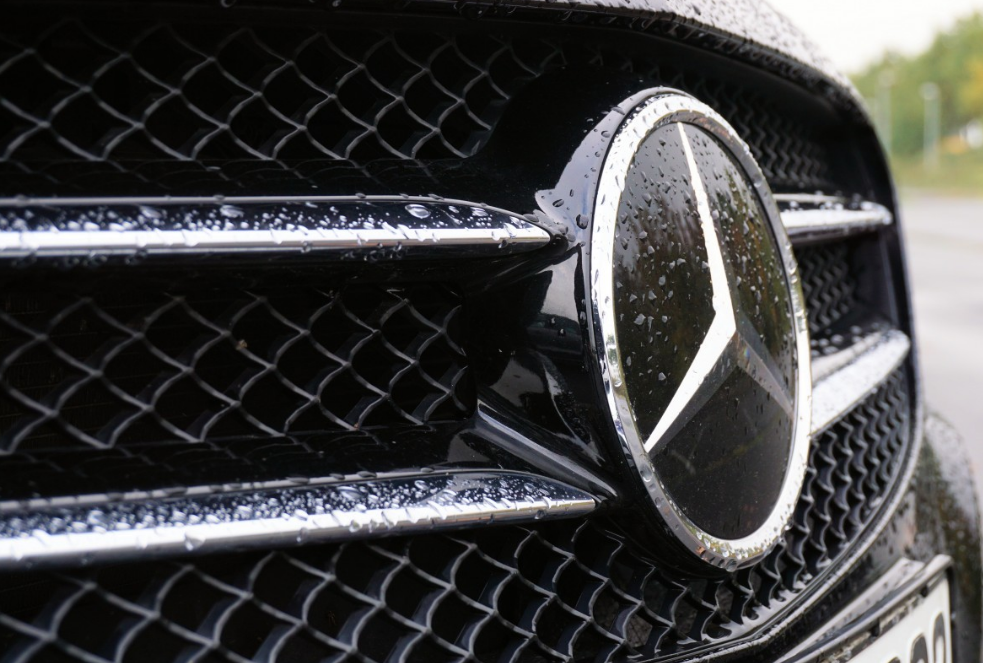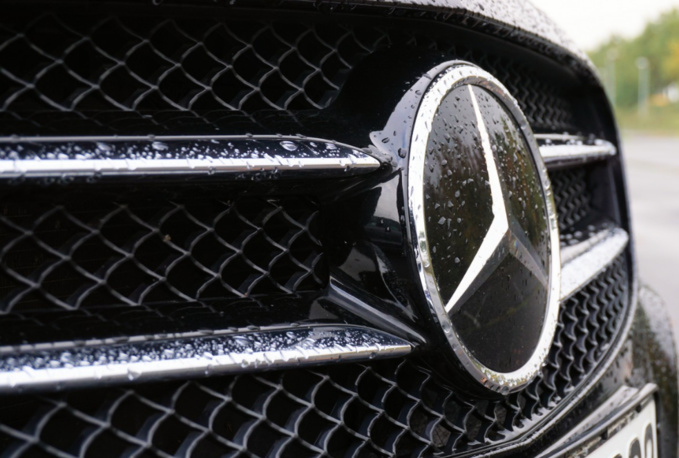From now on, the seventh part of the capital of the manufacturer of Mercedes will be controlled from the PRC. Geely and BAIC took first and third places in the list of its strategic investors, respectively. The sovereign fund of Kuwait with a share of approximately 7 percent is on the second. The French-Japanese group Renault/Nissan holds about 3 percent. The remaining shares are in the hands of numerous institutional and small investors.
The headquarters of the German company in Stuttgart reacted to the emergence of a new co-owner very positively, especially under the conditions of sudden slowdown in the German automotive industry.
“We welcome the fact that our long-term partner BAIC has become a long-term investor for Daimler now. This step strengthens our successful partnership and is a signal of confidence in our strategy and in the potential of our future enterprise,” said Ola Källenius, the new chairman of the board. The Swedish top manager has been occupying this post since May of this year; at the same time he is the head of the main division of Mercedes-Benz Cars.
In February 2018, there was a more restrained reaction Geely’s owner, Chinese billionaire Li Shufu purchasing a stake in the company. Then he came unexpectedly, secretly buying up a large package. But arrival of BAIC Group looks quite expected, logical and desirable.
Strategic partnership of Daimler and this Chinese state-owned car and machine-building holding began in 2003. In 2013, the German company bought 9.55 percent of the shares of its key subsidiary BAIC Motor, and from 2018 it has also been holding 3 percent of shares of BAIC BluePark New Energy Technology company, specializing in production of electric vehicles.
The current deal means that two long-standing partners have decided to consolidate their relationship with the help of such a proven tool as cross-ownership of shares.
“From our point of view, this partnership is an example of successful cooperation between a Chinese and a German enterprise; it can serve as a model for other firms in both countries,” said BAIC head. In turn, Ola Källenius, explaining Daimler's interest, stressed that "the Chinese market has been and remains one of the decisive pillars for our success - not only in the area of marketing, but also in the area of our design development and production."
In other words, China attracts Daimler not only with large sales volumes, but also with favorable production conditions, as well as its scientific and technical potential. Since it is impossible to develop this market without a local partner (the relevant Chinese laws have been repeatedly criticized by the European Union and became one of the reasons for the Donald Trump trade war against China), the manufacturer of Mercedes decided to rely on BAIC.
Actually, this is why Stuttgart was wary of Geely’s arrival a year ago: theoretically there was a threat that the private investor would interfere with established cooperation with BAIC (a joint venture with the help of which Daimler produced three-quarters of all cars sold in the PRC). Another reason was that the Chinese billionaire simultaneously owned Volvo Cars in Europe and was the largest shareholder of Volvo Trucks. And these are two direct competitors of Daimler in the markets of passenger cars and trucks, respectively.
However, the fears did not seem to be justified. On the contrary, it was just over a year after the arrival of a seemingly undesirable investor, as Daimler announced an agreement with Geely to create a joint venture for manufacturing a new generation of urban electric car Smart in China for the global market.
If the joint venture is created by the end of this year, the German company will relieve itself of concern for the brand, which has recently caused many troubles due to falling sales and deteriorating financial performance.
It is quite possible that this agreement that pushed BAIC to fork out about €2.4 billion to buy Daimler’s shares. Having become its strategic investor, it would also create a counterbalance to Geely. The German company will probably be able to benefit more than once from the confrontation of two large Chinese co-owners.
At the same time, arrival of BAIC will certainly lead to an increase in overall Chinese influence on Daimler. In any case, it will strengthen orientation of the German concern to the Chinese market. And this means that the manufacturer of "Mercedes" will have to pay increasingly more attention to development of the Chinese automotive market, namely, to electric cars.
source: dw.de
The headquarters of the German company in Stuttgart reacted to the emergence of a new co-owner very positively, especially under the conditions of sudden slowdown in the German automotive industry.
“We welcome the fact that our long-term partner BAIC has become a long-term investor for Daimler now. This step strengthens our successful partnership and is a signal of confidence in our strategy and in the potential of our future enterprise,” said Ola Källenius, the new chairman of the board. The Swedish top manager has been occupying this post since May of this year; at the same time he is the head of the main division of Mercedes-Benz Cars.
In February 2018, there was a more restrained reaction Geely’s owner, Chinese billionaire Li Shufu purchasing a stake in the company. Then he came unexpectedly, secretly buying up a large package. But arrival of BAIC Group looks quite expected, logical and desirable.
Strategic partnership of Daimler and this Chinese state-owned car and machine-building holding began in 2003. In 2013, the German company bought 9.55 percent of the shares of its key subsidiary BAIC Motor, and from 2018 it has also been holding 3 percent of shares of BAIC BluePark New Energy Technology company, specializing in production of electric vehicles.
The current deal means that two long-standing partners have decided to consolidate their relationship with the help of such a proven tool as cross-ownership of shares.
“From our point of view, this partnership is an example of successful cooperation between a Chinese and a German enterprise; it can serve as a model for other firms in both countries,” said BAIC head. In turn, Ola Källenius, explaining Daimler's interest, stressed that "the Chinese market has been and remains one of the decisive pillars for our success - not only in the area of marketing, but also in the area of our design development and production."
In other words, China attracts Daimler not only with large sales volumes, but also with favorable production conditions, as well as its scientific and technical potential. Since it is impossible to develop this market without a local partner (the relevant Chinese laws have been repeatedly criticized by the European Union and became one of the reasons for the Donald Trump trade war against China), the manufacturer of Mercedes decided to rely on BAIC.
Actually, this is why Stuttgart was wary of Geely’s arrival a year ago: theoretically there was a threat that the private investor would interfere with established cooperation with BAIC (a joint venture with the help of which Daimler produced three-quarters of all cars sold in the PRC). Another reason was that the Chinese billionaire simultaneously owned Volvo Cars in Europe and was the largest shareholder of Volvo Trucks. And these are two direct competitors of Daimler in the markets of passenger cars and trucks, respectively.
However, the fears did not seem to be justified. On the contrary, it was just over a year after the arrival of a seemingly undesirable investor, as Daimler announced an agreement with Geely to create a joint venture for manufacturing a new generation of urban electric car Smart in China for the global market.
If the joint venture is created by the end of this year, the German company will relieve itself of concern for the brand, which has recently caused many troubles due to falling sales and deteriorating financial performance.
It is quite possible that this agreement that pushed BAIC to fork out about €2.4 billion to buy Daimler’s shares. Having become its strategic investor, it would also create a counterbalance to Geely. The German company will probably be able to benefit more than once from the confrontation of two large Chinese co-owners.
At the same time, arrival of BAIC will certainly lead to an increase in overall Chinese influence on Daimler. In any case, it will strengthen orientation of the German concern to the Chinese market. And this means that the manufacturer of "Mercedes" will have to pay increasingly more attention to development of the Chinese automotive market, namely, to electric cars.
source: dw.de



















